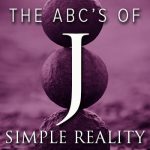
Pain cannot feed on joy.
It finds it quite indigestible.[i]
The false self feeds on reactions which produce the nourishment that perpetuates our pain and suffering. The True self is nourished by our response to life and the joy, happiness, peace of mind and compassion that results from embracing life as it is. The Cherokee maiden who awoke wondering which would win, would it be the black wolf or the white wolf fighting in her dream. It depends, said the Shaman she later consulted, on which one you feed.
Joy, therefore, can be found in existence itself, on our moment by moment choice of embracing or rejecting life. The Hindu sages said that te essence of our being, our True self includes joy (ananda). In its totality the True self is Satcitananda. Sat (Being), cit, (Consciousness), and Ananda (Joy) and they are One.
Let not the wise disturb the mind of the unwise in their selfish work. Let him, working with devotion, show them the joy of good work.
— Gita 3.26 [ii]
Why is joy so rare in the world of humankind? Especially in the West, in the 21st century, we are so often divorced from our inner joy. Two aspects of our “being” which we are alienated from are our intuition, our inner wisdom, and our experience of “feeling” when we are in the present moment. The four functions of cognition are sensation, feeling, thinking and intuition.
“[Intuition] allows us to gain knowledge from inner images that we grasp in a holistic way.”[iii] As a Jungian psychoanalyst June Singer is adept in using the insights inherent in Jungian typology. Modern humanity values the ability to think above other human activities. Philosopher William Barrett delivers the coup de grace to the enfeebled human intellect. “Thinking itself is only the halting and fumbling effort of a thoroughly biological creature to cope with his environment.”[iv]
Hence, the intellect and its process of thinking rears its ugly head as a barrier blocking our access to joy. June Singer agrees: “Literal language is that in which words correspond exactly to objects, and the meaning conveyed by the words reflects this one-to-one correspondence. But in the subjective world, literal meaning in this sense is senseless.”[v]
To put it simply, joy is a spontaneous and heartfelt creation flowing from our connection to the good, the true and the beautiful. Psychologist Robert Johnson makes the distinction between the experiences of the “head” and the “heart.” “The bells and music of Christendom have been the only voices by which the West told of the spirit without getting lost in concepts, abstractions, and words; the bells send forth a sound that is pure feeling that darts past the mind and sets up an involuntary reverberation in the soul.”[vi]
Joy can be found in the simple experience of being alive and present. “Joy is the affect which comes when we use our powers. Joy, rather than happiness, is the goal of life, for joy is the emotion [feeling] which accompanies our fulfilling our natures as human beings.”[vii] I think what Rollo May is saying is that joy is our natural state.
The long day wanes,
the slow moon climbs,
the deep moans round with many voices.
Come, my friends,
tis not too late to seek a newer world.
— Alfred, Lord Tennyson
[i] Tolle, Eckhart. The Power of Now. Novato, California: New World Library, 1999, p. 31.
[ii] Mascaro, Juan. The Bhagavad Gita. New York: Penguin, 1962, p. 58.
[iii] Singer, June. Seeing Through the Visible World: Jung, Gnosis and Chaos. San Francisco: Harper, 1990, p. 25.
[iv] Barrett, William. Irrational Man: A Study in Existential Philosophy. Garden City, New York: Doubleday, 1958, p. 19.
[v] Singer, op. cit., p. 11.
[vi] Johnson, Robert. We: Understanding the Psychology of Romantic Love. New York: Harper, 1983, p. 182.
[vii] May, Rollo. Man’s Search For Himself. New York: Norton, 1953, p. 84.


